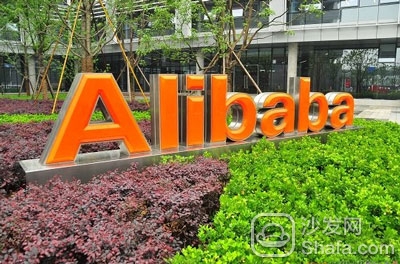
On the morning of February 9th, Alibaba Group announced that it had invested 590 million U.S. dollars (approximately 3.6 billion U.S. dollars) in shares of Meizu Technology, becoming the Internet giant that first invested in mainstream mobile phone manufacturers. This is also Alibaba's biggest investment since its listing.
After completing the Meizu shareholding, the independently operated Meizu will become an important piece of Alibaba's wireless Internet ecosystem, playing a role similar to Google’s Nexus, which will enable Alibaba’s mobile strategy to enter a new phase of deep integration of hardware and software, while helping the Tmall channel Further development, and promote Alibaba's mobile strategy from the App era into the "wireless ecological era."
After joining the shares, Alibaba Group and Meizu will also carry out a series of cooperation at the strategic and operational levels. The two parties will form a long-term strategic partnership. Ali will provide resources and support for Meizu in e-commerce, the Internet, mobile Internet services, smart phone systems, data analysis and payment, Meizu will be in the promotion of smart phone systems, for hardware and user customization in the visual and interactive The company provided support and assistance to Ali in marketing, marketing strategies, and offline sales channels, thereby extending Alibaba's mobile Internet advantage.
Deep integration of hardware and software
Through the investment in Meizu, Alibaba’s wireless strategy has actually entered the era of deep integration of hardware and software. The in-depth cooperation between system vendors and hardware vendors is expected to create a stronger user experience for hardware and software integration.
From the very beginning of the mobile Internet hubbub, the BAT giants have been rumbling to invest in mobile phone manufacturers to master the deep integration of hardware and software. This time, Alibaba finally took the first big step.
Among the major players in China's smartphones, Meizu is an independent quality smartphone manufacturer. The unique personality of founder Huang Zhang, product-driven corporate culture, and the pursuit of hardware and software technology have enabled Meizu to have a loyal user base.
In October 2014, because of the cooperation with Meizu, Alibaba Chief Technology Officer Wang Jian made a visit to Zhuhai, met with Meizu founder Huang Zhang, and was moved by Huang Zhang and Meizu to create a spirit of extreme products. Wang Jian was at Weibo at that time. Meizu praised the mobile phone with a soul.
After Wang Jian’s move south, Alibaba and Meizu reached a system-level cooperation and launched the Flyme Powered by YunOS version of the MX4, which was warmly welcomed by the users during the Double 11s. This is actually an attempt to deeply integrate Alibaba with the Meizu hardware and software.
In the process of cooperating with Meizu, Alibaba found that in the current market situation, users tend to choose products and services that have good software and hardware design. By cooperating with Meizu with excellent product design capabilities, it will help further to make Alibaba's wireless products more familiar and loved by more users.
Investing in Meizu, an up-and-down software and hardware integrated terminal company, has enabled Alibaba's wireless strategy to enter a new stage of deep integration of hardware and software: whether it is a combination of YunOS or deeply customized applications, and innovative O2O services. All of this can be combined with the Meizu, integrated application development distribution, shopping, payment, travel, O2O, local life, browsers, maps, videos, music Ali's existing ecosystem.
Like Google’s Nexus series, Alibaba’s investment in mobile phones means that in-depth integration of hardware and software can better demonstrate the power of wireless ecology.
Mobile e-commerce end, Ali "multi-screen + ecological" wireless strategy
Alibaba’s fourth-quarter financial report showed that mobile GMV accounted for 42% of the total, mobile monthly active users were 265 million, and there was an unassailable 86% market share in mobile e-commerce. Taobao, Alipay wallet, UCWeb and other applications firmly occupy the mobile phone small screen, Lynx box is cut into the living room screen.
Mobile e-commerce operators have already achieved success. Since the second half of 2014, Alibaba’s wireless strategy has begun to shift from a mobile e-commerce app to a deeper “wireless open ecologyâ€. Zhang Yong, chief operating officer of Alibaba Group, once said: "Let Alibaba's basic capabilities jump more from the "end" limit, giving more variety from the ecosystem."
Recommended installation sofa butler, download address: http://app.shafa.com/
